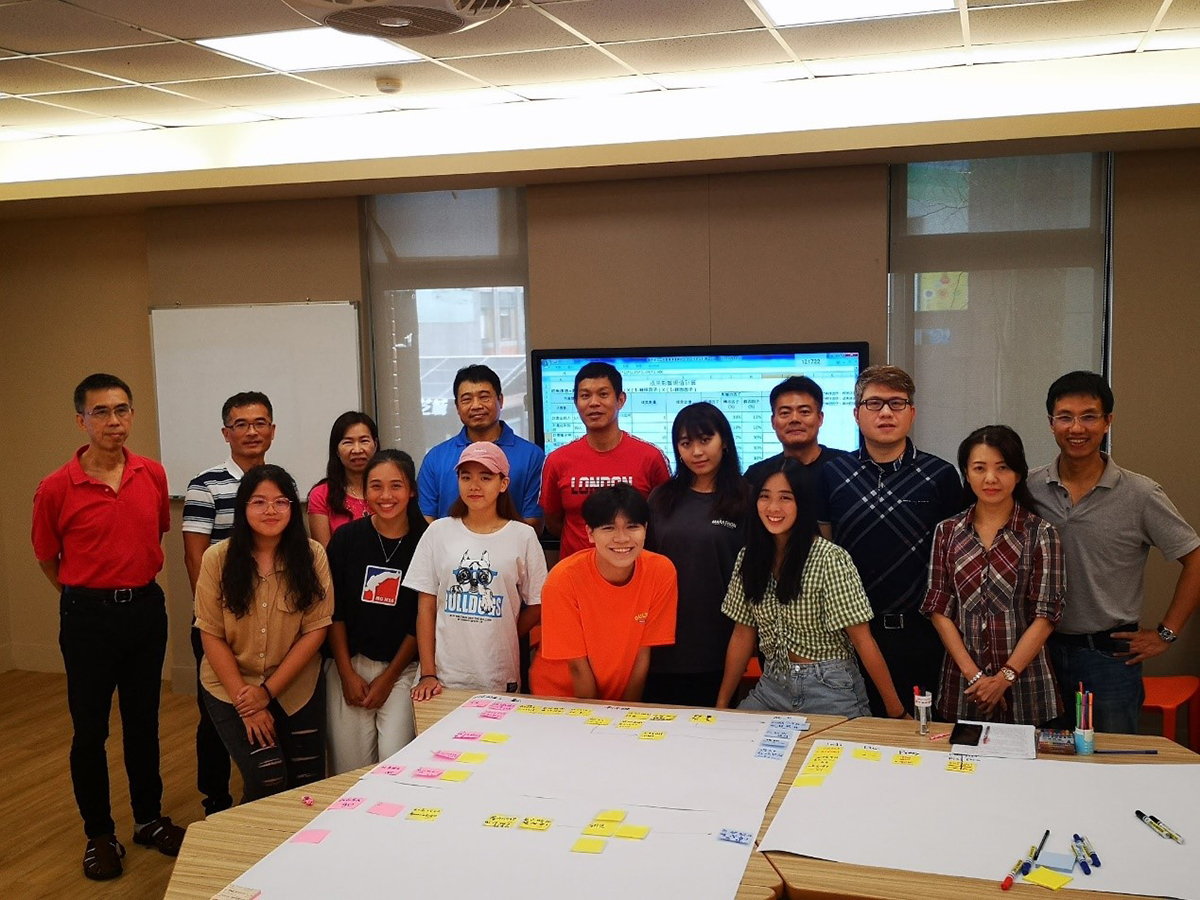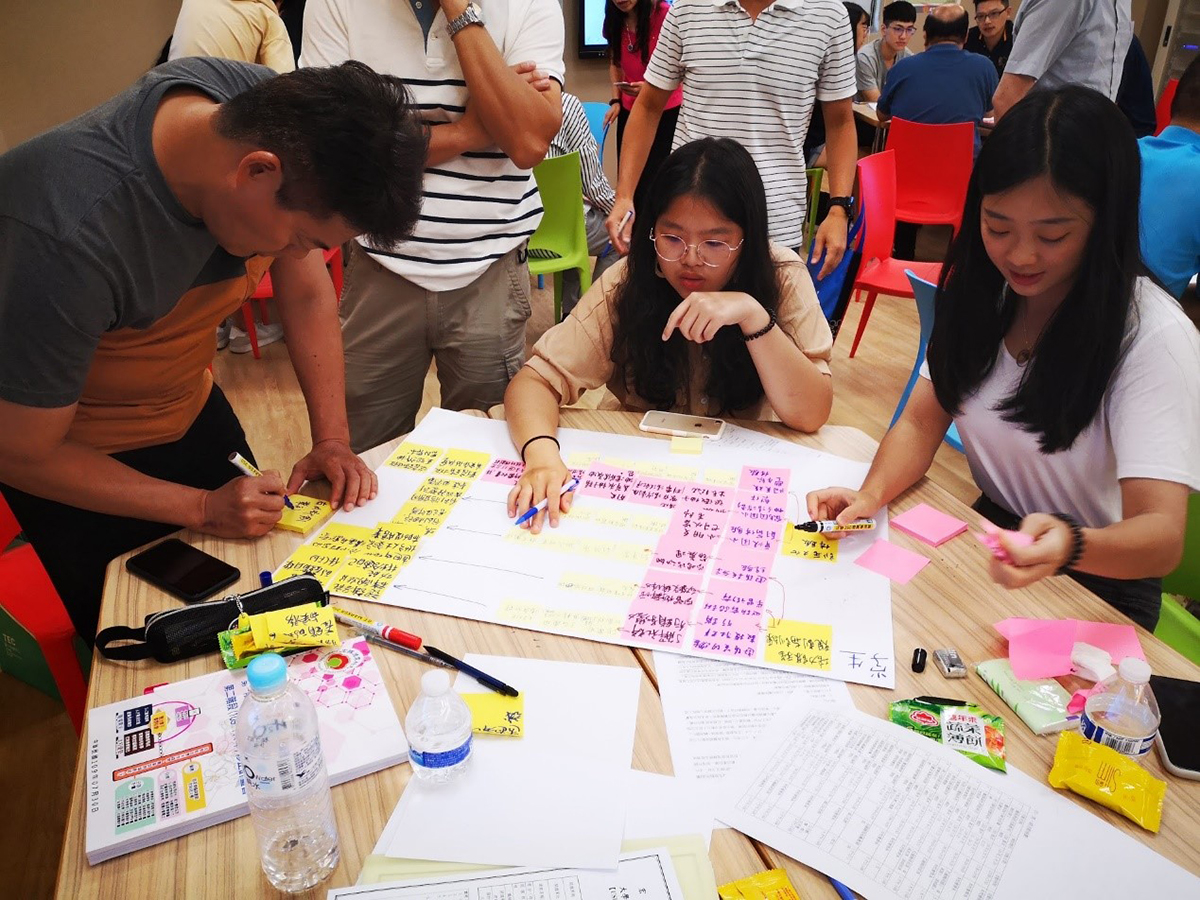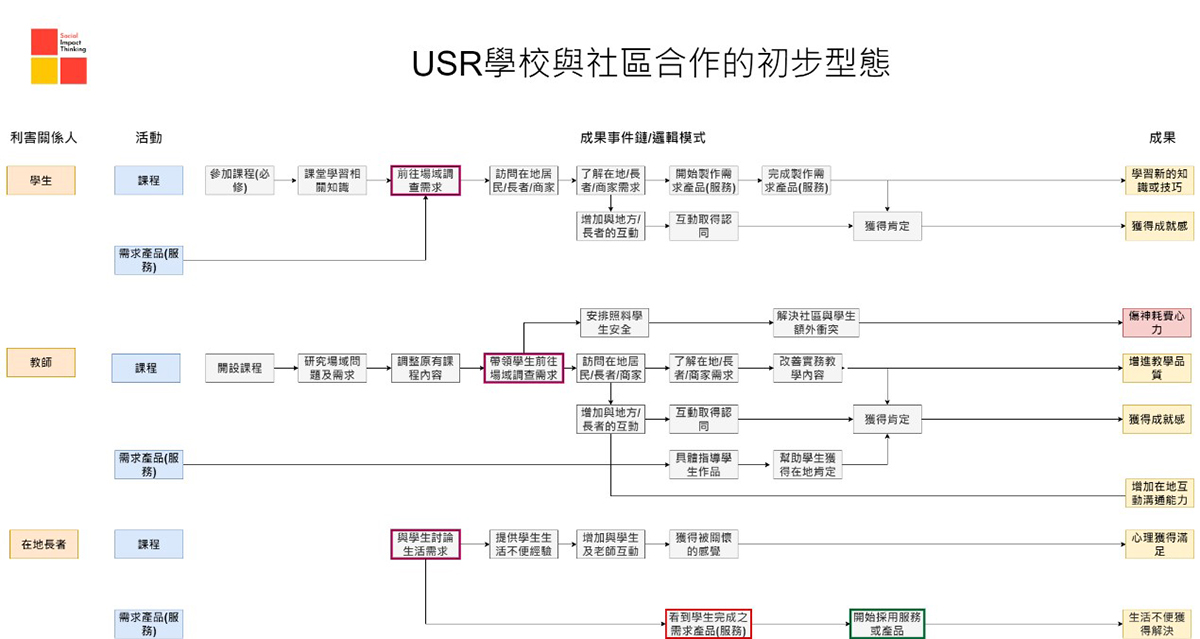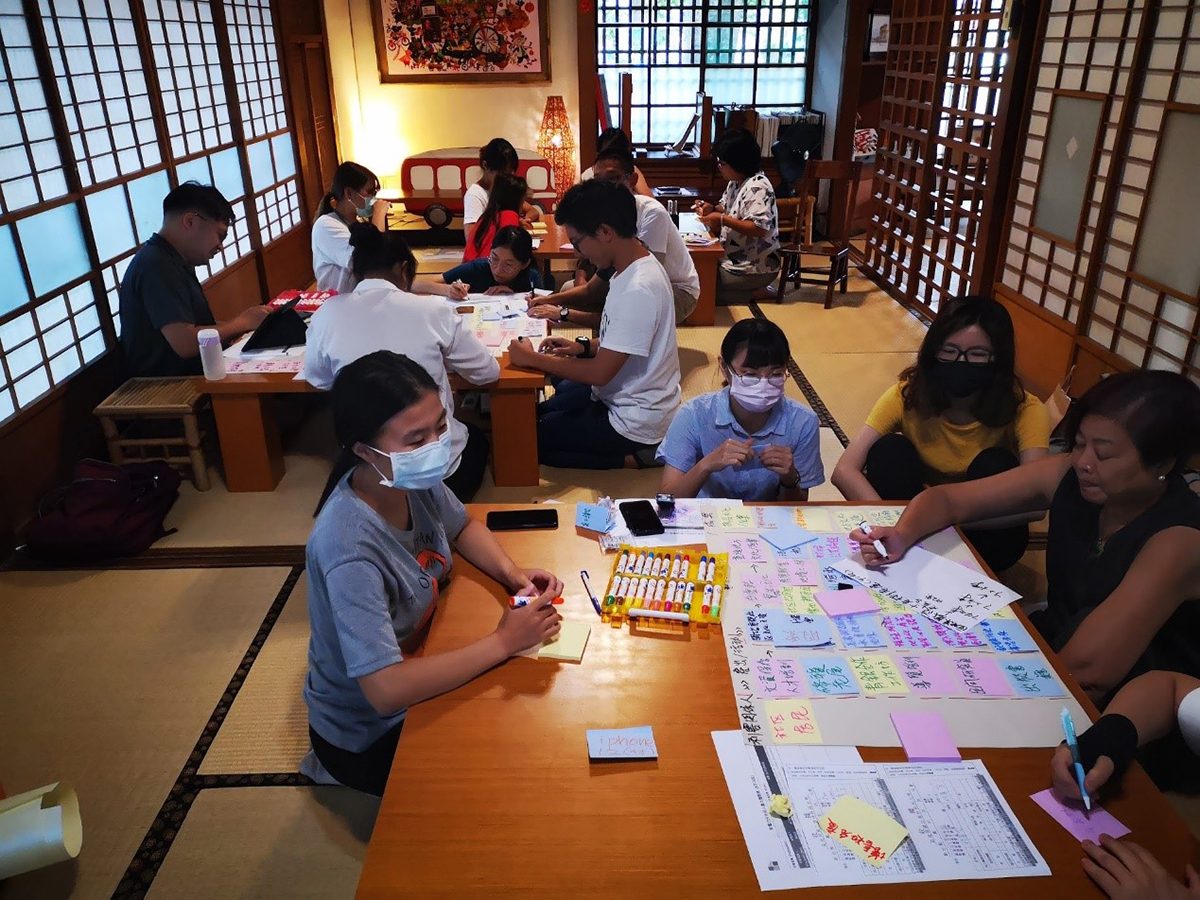Management or Evaluation: Practical Application of Social Impact Assessment on the University Social Responsibility Project (USR)
Social Impact Thinking x Qin-Mei Co., CPAs
Dr. Ko Yung-Chuan
Mr. Tu Yu-Jen
“Social Impact Thinking” was founded by Dr. Ko Yung-Chuan from Ocean Conservation Administration and Tu-Yu-Jen, an accountant from Qin-Mei Co., CPAs. Having served in the government for over 2 decades, Dr. Ko Yung-Chuan has reviewed countless government investment (subsidy) projects; he discovered that regardless of village development, homecoming youths, new start-ups, or USR, they all focus on what their projects are about instead of proposing how they can address the social problems in question. Consequently, Dr. Ko Yung-Chuan introduced the concept of “social impact management” to governmental project review and management in 2017, and he also obtained the Social Value International's Accredited Practitioner LV3 Advanced Practitioner certificate. After founding “Social Impact Thinking,” he launched courses to promote social impact evaluation. Accountant Tu-Yu-Jen obtained the Social Value International's Accredited Practitioner LV3 Advanced Practitioner certificate in 2017. Besides helping private enterprises and government agencies to compile social impact assessment reports, he is also a specialist lecturer at Social Impact Thinking and one of the most influential analysts of social impact assessment projects in Taiwan.
“Social Impact Thinking” was established because the founder has observed that although impact assessment has become an important technique adopted by public and private organizations worldwide to manage and monitor resources, it has yet to be professionally introduced or systematically taught in Taiwan. As a result, even though many organizations have realized the importance of social impact assessment, they are unable to implement it on government agencies or projects. Our mission is to introduce social impact assessment to practical project management and evaluation in Taiwan in an efficient manner, where impact thinking is applied to maximize the organization's missions and values.
“Social Impact Thinking” utilizes Social Return on Investment (SROI) for social impact assessment. Our primary mission is to promote the operation and application of social impact by organizing social impact assessment workshops. So far, we have collaborated with the Soil and Water Conservation Bureau, local cultural halls, as well as public and private universities. Through courses and practical means, we can help the participants to understand the 7 principles and 6 steps of SROI in order to optimize the benefits of their respective projects. Aside from promoting social impact assessment, we also assist companies, government agencies, or schools to implement the system in their management process. We have facilitated the rapid approval of projects including the Rural Young project as well as cultural and educational foundations' project evaluation. Lastly, we have assisted prominent firms such as TSMC and Cathay Financial Holdings to compile CSR reports and SROI reports.
How do we apply the “social impact assessment” to the university social responsibility (USR) project? This is an important dimension that we focus on. By collaborating with universities, we can help schools conduct USR projects to carry out a thorough evaluation of its internal USR project through workshops combined with individual consulting. The evaluation process begins with the list of project stakeholders followed by training the project team (including project principal investigator, investigator, and assistant) so that they can depict the project outcome and deduce the impacts. Furthermore, the project team will determine the outcome indicators and values before reviewing the negative external impacts of the project, attributable proportion, and whether the same outcome can be achieved without the USR project. The project team will be allowed to understand the process of their projects and think about issues such as the aspects requiring reinforcement, the activities that they should pay attention to, how to prevent waste in various areas, and who are the biggest beneficiaries of the project. The ultimate objective is to successfully expand the benefits of the USR project.
From our experiences in assisting organizations to implement social impact assessment, we have discovered that numerous schools' USR project place the emphasis of their courses on specific subjects in particular venues (such as senior citizens, children, or new residents), or they have chosen residents of a region as their course subjects by opening classes in the communities. They intend to fulfill the university's social responsibilities by applying the power of knowledge of universities or by providing professional services to help the local communities.
Most of the project team can identify students, teachers, and local service subjects as being the 3 major stakeholders, while various stakeholders also present different feedback regarding the project. As far as students are concerned, the main change originates from the sense of achievement when they are given the opportunity to resolve problems in the local communities. However, they believe that improving their professional knowledge results in relatively insignificant change compared to learning in school. Most teachers believe that although there is a negative impact of increased workload, they have nonetheless forged relationships with the local communities and improved their project execution skills. Lastly, concerning the USR project's local service subjects, we have noticed that many schools are unable to make sure that the services and solutions they have introduced will cater to the needs of the local communities, meaning that under such circumstances, the USR project's service targets may have not attained the expected values and performance at all!
Therefore, we think that the correct observation and detection of the social agenda is the key component of the USR project at this stage. Values are derived by catering to the pains and needs of the stakeholders, if we are unable to understand their pains, it will be difficult to ascertain the appropriate value creation elements. The USR project can only truly transform society by overcoming this obstacle, and social impact assessment aims to help the execution team to find the adequate starting point for social innovation.
Further Reading:
Social Impact Thinking FB fan page: https://www.facebook.com/Impact.facilitator
Qin-Mei Co., CPAs: https://www.qmcpa.com.tw/
Measures for Leaving a Message to Enter the Draw for the Live Streaming of the Opening Ceremony
-
Event Period
From 13:00 to 14:00 on December 12 (Saturday), 2020
-
Event Measures
Log in to your personal Facebook or Google account to proceed with leaving a message; each account with a successful message of #2020usrexpo left before the end of the live streaming of the opening ceremony will have an opportunity to enter the draw, and each account is restricted to winning the prize once only.
-
List of Winners
On December 14 (Monday), 2020, the list of winners will be announced on the event official website https://2020usrexpo.org/) Announcement of the list of winners
Event Prize Content
-
1st Prize
“Huei Yeh” Power Extreme Massage Gun 1 winner
-
2nd Prize
Nestle Dolce Gusto Genio 2 1 winner
-
3rd Prize
KINYO Bluetooth 5.0 Wireless Speaker 2 winner
-
4th Prize
7-11 Gift Voucher valued at NT$200 27 winner
Announcement of the list of winners
The various prizes are expected to be notified via email and also announced on the event official website on December 14 (Monday), please will the prize winners pay attention to the prize-winning information, and send back the relevant documents according to the notices & explanations; no separate notification will be issued.
Notices
- The event period for this event is based on Taiwan time, and the delivery of the rewards is restricted to regions including Taiwan, Penghu, Kinmen, and Matsu.
- Please refer to the actual products for the event rewards, the pictures used on the website are for reference only; no request for changing colors, specs, transfers, or cash redemption will be accepted.
- Our event organizer will not be liable for the follow-up warranty and maintenance of the winning rewards; once the rewards have been collected, signed, and accepted, no reissuance of the rewards will be available if the rewards have been lost, peculated, discarded, or damaged. Please refer to the actual products for the prize rewards, no return or exchange will be accepted; the prize winner must contact the manufacturer of the rewards if there is any issue regarding malfunctioning, damage, or maintenance.
- 1st prize ~ 2nd prize (Winning prizes with a value exceeding NT$1,000 (inclusive): Each prize winner should fill out the “Reward Collection Application and Receipt (will be announced together with the announcement of the list of winners)” within 7 days (including holidays based on the post stamp) starting from the next day with the announcement of the list of winners, and must provide a copy of both sides of the ID card. The copy must be sent to the specified place via registered mail; those passing the deadline will be deemed to give up the prize and rights, and no objections will be accepted from the prize winners.
- 3rd Prize ~ 4th Prize (Winning prizes with a value less than NT$1,000 (inclusive): Prize winners should reply to the prize-winning notifying letter via Email within 7 days (including holidays) starting from the next day of the announcement of the list of winners, to confirm the collection of the rewards and to fill out the relevant info for sending the rewards (to confirm the address for sending the gift), and to accelerate the follow-up qualification review. If the prize winners do not complete the relevant info before the deadline, they will be deemed to give up the opportunity to collect the rewards, and no alternative gifts or reissuance of gifts will be available.
- When the prize winners have completed filling out the prize-winning info, the organizer will double-check the identification data of the prize winners, the rewards will only be sent out when all data is correct.
- All prize-winning qualification needs to be approved by the organizer before it becomes effective, all reviewing standards are based on the organizer as the only reference.
- If the prize winner did not fill in the data complete and correct, or cannot be in contact, or did not send back the required data within the announced time of the rewards, the prize winner will then be deemed to voluntarily give up the prize, no separate notification will be announced.
- According to the R.O.C Tax Act, if the prize winner is an individual residing in Taiwan, and the prize amount (value) exceeds NT$1,000 (inclusive), then a copy of both sides of the ID card will need to be handed in for taxation, which will be incorporated into individual income for the annual taxation. If the prize winner is not an individual residing in Taiwan, 20% of reward tax must be deducted from the reward first regardless of the prize amount before the prize winner can collect the reward. If the prize winner is not an adult, a household registration transcript must be provided along with a letter of consent from the legal representative. If the prize winner is unwilling to pay the tax first, he/she will be deemed to give up the reward, and no objections will be accepted.
- If the prize winner is in violation of the relevant event measures or has other dissents, the organizer is allowed to retrieve the reward and no objections from the prize winner will be accepted. If a judicial dispute is involved, all legal liabilities will be held by the individual. The organizer will not be liable.
- If it is confirmed that the participant used a hacker program or other method that evidently violates the fairness of the event in an attempt to influence the event, the organizer is then allowed to disqualify the participant immediately or to cancel the prize-winning qualification. Compensation will be liable if a loss is caused for the organizer due to this.
- For reasons that the organizer are not liable for, including a computer, network, telephone, or technique issues resulting in the delay, loss, incorrect, unidentifiable, or damaged data uploaded by the participants, the organizer will not be liable for any legal liability, and no objections from the participants and prize winners will be accepted.
- The organizer reserves the rights to review the qualification of the event participants, if the organizer or a third party has reported that the participants are found to use methods that are intentional or evidently violate the fairness of the event, or do not conform to the rules of this event, the organizer will then be allowed to cancel the prize immediately.
- The event measures are stated on the event platform, the organizer reserves the right to alter the event details at any time (participating method, gift content and quantity…etc.); the participants must agree completely to follow and obey the alterations of the event without any objection. Please refer to the announcement of the event measures if alternations have been made to the event measures, no separate notification will be available.
- Unmentioned matters of this event should be handled according to the relevant rules of the civil law; the organizer reserves the rights to maintain, modify, cease and explain the content, as well as to cancel the prize-winning qualification of any prize winner influencing other prize winners’ rights. Refer to the announcement on the platform for the modification info; no separate notification will be available.
- Participants in the event agree to accept the event measures and notices, if, in violation, the organizer will then be allowed to cancel the qualification of the participant or the prize winner, and then request the participant for compensation for the losses caused.
- When the event is unable to be conducted due to force majeure causes, the organizer has the rights to cancel, terminate, modify, or cease the event. Participants in the event are deemed to accept the effectiveness of the rules, for unmentioned matters, the organizer reserves the rights to modify, terminate, and alter the event content details without giving out a separate notification.
TOP





